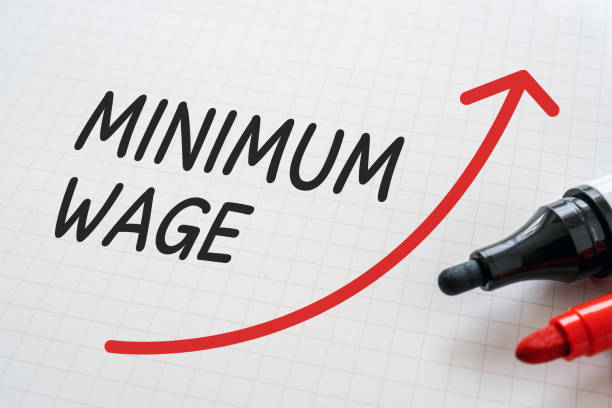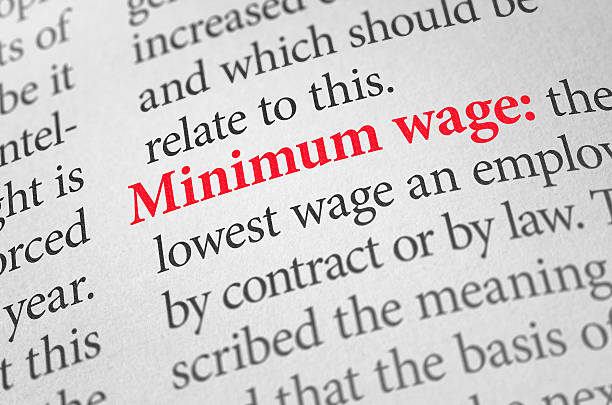How to Budget on a Minimum Wage in Nairobi
Living on a minimum wage in Nairobi can feel overwhelming, especially in a city where the cost of living continues to rise. With essentials such as food, rent, transportation, and healthcare putting a strain on limited income, it becomes crucial to master the art of budgeting. Whether you’re earning the statutory minimum wage or working in an informal job that pays modestly, financial planning is the key to making ends meet and building a secure future.

This guide is tailored to help Nairobi residents learn how to budget on a minimum wage while still meeting essential needs and planning for emergencies. We’ll share practical strategies, money-saving tips, and realistic examples to support anyone aiming to stretch their income and stay financially stable.
1. Understand Your Income and Expenses
Start by calculating your total monthly income. This includes wages, side hustles, and any other earnings. Next, list down all your expenses: rent, food, transportation, utilities, savings, and miscellaneous costs. Categorize these as either essential or non-essential. Tools like budgeting apps or simple Excel sheets can be helpful.
2. Follow the 50/30/20 Rule with Adjustments
Though the 50/30/20 rule recommends allocating 50% of income to needs, 30% to wants, and 20% to savings, minimum wage earners may need to adjust this. A better structure could be:
- 70% Needs (rent, food, transport)
- 10% Wants (entertainment, data bundles)
- 20% Savings/Debt Repayment
Even small savings matter and build a habit of financial discipline.
3. Prioritize Affordable Housing
Rent typically takes the largest chunk of income. Consider living in more affordable neighborhoods such as Kayole, Embakasi, or Githurai. Sharing accommodation with a trusted roommate can also cut rent and utility bills significantly.
4. Reduce Transport Costs
Use matatus, walk short distances when possible, or carpool with colleagues. Invest in a monthly commuter pass if your route supports it. Some employers offer transport reimbursements—always ask.
5. Shop Smart for Groceries and Essentials
Avoid impulse buying. Shop at open-air markets like Gikomba or Wakulima for cheaper produce. Buy items in bulk and consider buying generic brands rather than name brands. Meal planning reduces food waste and helps control spending.
6. Manage Utility Bills
Reduce electricity and water consumption to lower bills. Use energy-efficient bulbs, unplug electronics when not in use, and limit water usage. Consider using gas cookers over electric cookers to save costs.
7. Supplement Your Income
Explore small side hustles like freelance work, online gigs, selling handmade products, or offering services such as tutoring or hair braiding. Many Nairobians supplement income this way.
8. Create an Emergency Fund
Save as little as KSh 100 a week. Use mobile money platforms like M-Shwari or KCB M-Pesa for easy, low-barrier savings. Over time, this can cushion you from financial shocks like medical emergencies or job loss.
9. Avoid High-Interest Loans
Mobile loan apps are tempting but often come with high interest rates. If borrowing is necessary, explore SACCOs or table banking groups that offer lower interest and better repayment terms.
10. Leverage Community Support and Free Resources
Use public services and community centers that offer free education, healthcare, or job training. Also, look for NGOs or church groups providing financial literacy workshops.
Benefits of Budgeting on a Minimum Wage
- Financial Stability: Reduces reliance on debt and helps you meet daily needs consistently.
- Preparedness: Helps you plan for emergencies and avoid panic in times of need.
- Goal Achievement: Whether it’s starting a small business or paying for school, budgeting helps allocate funds to achieve goals.
- Improved Mental Health: Being in control of your finances can reduce stress and anxiety.
Frequently Asked Questions (FAQs)
Q1: Can I really save money while earning minimum wage?
Yes. Even small, consistent savings matter. Start with KSh 20–100 daily and build from there.
Q2: What budgeting apps work well in Kenya?
Apps like Monefy, Wallet, or a simple Excel spreadsheet can help track income and expenses.
Q3: How do I reduce food costs without compromising nutrition?
Buy in bulk from markets, cook at home, and minimize takeout. Opt for seasonal fruits and vegetables.
Q4: What if my income changes every month?
Base your budget on the lowest income month to stay safe. Any extra should go into savings or paying off debts.
Q5: How can I find support for financial literacy in Nairobi?
Check local community centers, NGOs, or online platforms offering free courses on budgeting and personal finance.
Conclusion On Budget on a Minimum Wage
Budgeting on a minimum wage in Nairobi is challenging but possible. It requires discipline, planning, and resourcefulness. By tracking expenses, prioritizing essentials, and seeking support, you can achieve financial stability and even set aside savings for a better future. Use these tips as a starting point to take control of your finances and thrive—even on a tight income.





